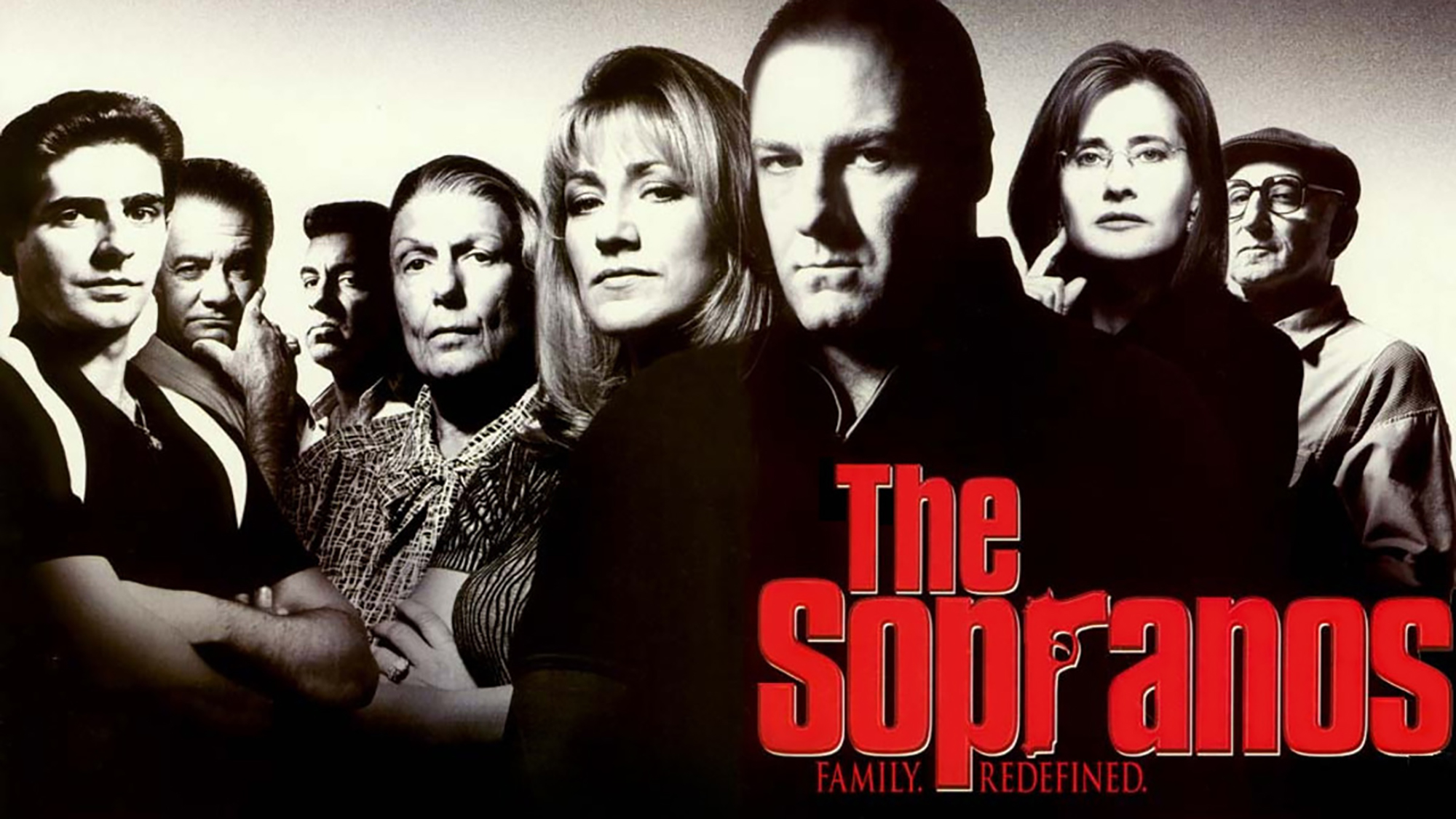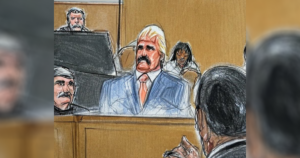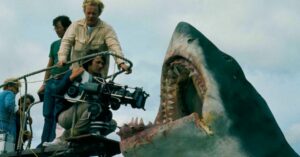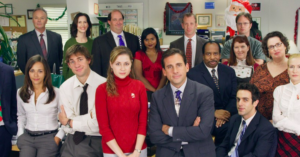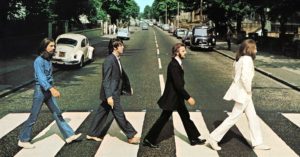In 1999, David Chase was a virtually unknown screenwriter who had toiled in network development for years with little more than a few credits to show for it. Meanwhile, as major Hollywood studios continued to churn out blockbuster after blockbuster that made more money than was even thought possible just a few years earlier, television had been relegated to a mere stepping stone to feature lengths, and the medium was in the midst of a full-blown identity crisis of its own.
Only eight years later, David Chase would be universally regarded as the mastermind who elevated television to its highest form, ushered in an entire generation of prestige TV, and forever changed what was thought artistically possible on the small screen. This is the story of how TV’s biggest underdog became its long-awaited savior. This is the story of how the family saga of a New Jersey mob changed the world. This is the oral history of The Sopranos.
Chapter 1: ‘Even A Broken Clock Is Right Twice A Day’
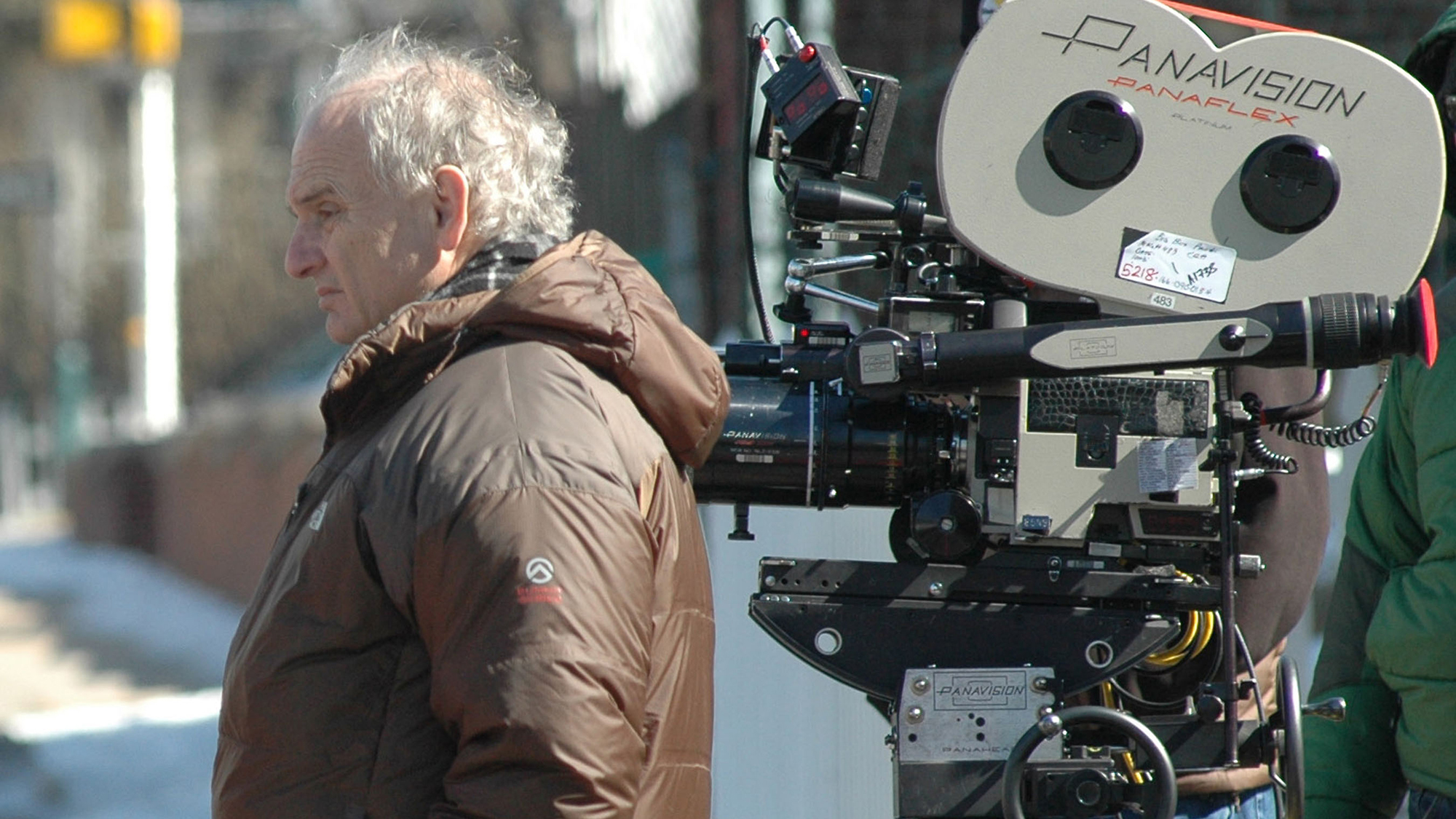
David Chase (series creator): By 1999, I had already spent over 30 years in Hollywood trying to get the stink off my name from my very first writing job: the 1977 Halloween episode of Happy Days. I made a mistake on that one by writing a script where the Fonz gets hit by more than one car in a single episode. Audiences hated it, and it really damaged my career.
Brad Grey (executive producer): I didn’t know a David Chase in ’99. No one did. But everyone in Hollywood had heard of “The Fonzarelli Sadist.” He was the bald wiry fuck who wrote the Happy Days episode where the Fonz is hit by four separate cars in a mere 22-minute broadcast. You’d hear him described around town constantly, like, “Did you hear? The Fonz Sadist who tortured Fonzie in that shit Halloween episode is desperately sliding treatments under every strip mall door in the town—Rite Aids, Hallmark stores, you name it,” or, “The sad-looking Fonz Sadist who graphically showed Fonzie getting run over by a car four times tried getting a gig writing the entrée descriptions for the Perkins menu but couldn’t even do that.” He was roasted a ton, but his actual name wasn’t mentioned much, really.
Matthew Weiner (writer): I only knew David Chase as the guy who made my parents cry by showing the Fonz get run over with a car after basically every commercial in that one Happy Days episode. What a mess that was. It was supposed to be a Halloween episode, but there was nothing Halloween-ish about it. They hammered home that it was set in April because everyone kept saying, “April showers bring May flowers,” and the plot was essentially the same as it was in the prior week’s episode, something about Potsie growing his hair out. The only real difference was that it had four way-too-long scenes of Fonzie underneath a car tire, yelping, “I prayed that this wouldn’t happen and it happened anyway!” while the rest of the characters quietly looked at their feet because they knew they didn’t have the guts to put him out of his misery. It took the Happy Days writers years to regain the audience’s trust after that, and David was pretty much blackballed ever since.
David Chase (series creator): I honestly thought people would be glad to see how well the Fonz handled getting hit by four cars. I thought audiences would be excited to learn he can’t die that way. I misread it.
Terence Winter (writer and executive producer): By 1999, my career was going pretty well. I’d written on a handful of successful shows and was dabbling in producing a little, too. But years earlier, I’d made a deal with David Chase when he was at his lowest. I saw the Fonz Sadist walking out of a Potbelly Sandwich Shop carrying a plastic bag, and I told him, “If you give me those leftovers, I promise to write on any show you ever get into development.” Of course I never thought he’d actually get a show on the air. I would have bet my house that he’d be out of the business by the end of the month. At that time, I thought I was simply stealing leftovers from a depressed man. But years later, David had his beautiful Sopranos revelation, and I’ve been grateful every day since for developing a habit of scamming the saddest sacks I could find.
David Chase (series creator): I was at the end of my rope and I knew it. I spent years trying to backtrack on my initial impulse toward rawness and realness in Happy Days and show people that I can write upbeat, viewer-friendly things, too. I pitched a show about cartoon birds who were siblings and proudly best friends with each other. I wrote a show about cartoon dolphins who were all sisters and adults and still lived together because they just liked it. I wrote one about animated penguin brothers who always said, “I love you,” to each other before they hung up the phone. And it all got me nowhere. Finally, I put my foot down and decided that if I’m going to fail, then I’m going to fail pitching what’s in my heart. I thought, I’m a Jersey kid. I’m Italian. I know what story I have to tell. So I set up one last pitch meeting at HBO.
Chris Albrecht (president of HBO original programming): The Fonz Sadist stormed into my office without an appointment and announced, “Together we’re going to make a show about the architects who design X Games ramps. How they come up with it, how they make everything so smooth, that sort of thing. Those guys gotta be a trip.”
Richard Plepler (co-president of HBO): We of course said no right away, and the guy kind of started crying almost. Then he scrambled for his notepad, started flipping through it, and said, “Wait, fuck. Hold on. What if it’s about Tony Soprano being mean to all of his friends?” and we said, “Honestly, that sounds fine.”
David Chase (series creator): Once I got the green light on the Tony Soprano nonsense, I knew that this was my one chance to turn things around and redeem myself in the eyes of the world. I wouldn’t have to be “The Fonz Sadist” anymore. I could finally get a nice nickname like “The Young Toni Iommi” maybe. This was my chance to make something special and completely change the game.
Chapter 2: ‘It’s Good To Be In Something From The Ground Floor’

David Chase finally got the green light for the project he’d waited decades to make, but the work was only just beginning. If The Sopranos was going to be the genre-busting masterpiece he envisioned, he’d need to find the perfect leading man to star as the show’s brooding antihero, and the perfect cast to support him.
David Chase (series creator): I knew right away that this wasn’t going to be your glamorous, run-of-the-mill Hollywood mafia story. This was going to be a story about what it means to be human, so even if audiences didn’t know anything about the mafia, they could still relate to Tony’s every-man struggle of wondering if your therapist likes you or thinks you’re a piece of shit. With that vision in mind, I knew that I needed an average Joe to play Tony. I didn’t want some jaded Hollywood hot shot like Robert De Niro or Al Pacino.
Terence Winter (writer and executive producer): De Niro and Pacino were so high on David’s list for playing Tony Soprano that it was kind of pathetic. He idolized those guys. He called them “The Godbrothers,” and he had director chairs made with their names stitched on the back part even though neither of them had agreed to be in the show. David was using those chairs in his apartment as dining room chairs until filming began. Said he was “keeping them warm for them” until one agreed to be Tony Soprano. It wasn’t until he met with them that he got it through his head that they weren’t taking the role.
Brad Grey (executive producer): David invited Robert De Niro and Al Pacino to the same dinner meeting without telling them that the other one would be there, kind of like a Parent Trap situation. He got to the restaurant first and sat there at the table with his shit-eating grin, really believing that he was about to watch two of the most legendary actors alive fight over which one got to play Tony Soprano, a character who at that point was essentially a live-action Fred Flintstone who ate lunch meat right out of the fridge sometimes.
Terence Winter (writer and executive producer): De Niro and Pacino arrive and instead of being angry that they were both invited to the same meeting, they’re so excited to see each other because they’re friends, and they go on to talk for the entire meal as if David wasn’t even there. It was humiliating. The dudes were having a full-blown “remember when” conversation about shooting Heat back in ’95, laughing and clapping each other on the back, all while David’s just sitting there, totally unable to hop in the conversation.
Brad Grey (executive producer): The only thing David got the chance to mention about the Tony Soprano role was when, during a brief moment when De Niro and Pacino had stopped laughing with each other, he muttered, “Tony Soprano owns a strip joint, could be cool.” De Niro and Pacino both responded by slamming their hands down on the table and telling him to shut the fuck up because they hated when people called them “strip joints.” David got so red, and pretty much saw that they were out of the project.
David Chase (series creator): Once I made the decision that Tony Soprano had to be an unknown actor, I started asking around for names of actors who could handle what I was imagining, and it was a tall order. I needed someone authentically Jersey enough to know how to avoid touching the hand of the gas attendant who just filled up his tank when getting his debit card back, but a good enough actor to make it seem like he wasn’t purposefully avoiding the guy’s gas-hand or anything. And the more I asked around, the more people recommended a guy named James Gandolfini.
Ilene S. Landress (executive producer): At that time, James Gandolfini was making a lot of noise on Broadway, and for what David had in mind, he seemed to be a perfect fit. He was raw and talented, crushing in plays like, Beating The Shit Out Of My One Friend And I Forget Why, There’s Only One Ponytail And It Belongs To Furio, and The Priest And My Wife: Might’ve Been Something Going On There But It’s Boring. It was a match made in heaven.
Terence Winter (writer and executive producer): We went to watch him perform one night, and the depth he showed as an actor was like nothing I’d ever seen. It was a production of Cats, and there he was onstage, all dressed up like a big hairy cat. On paper, his role was meant to be a very quiet, background character, but James was able to add incredible layers and completely stole the show. On the outside, he seemed like he was having a fine time dancing around like a cat, but underneath, you could tell that he was furious about how dumb he looked, a grown-ass man who has to pretend he’s a cat, licking his hand sometimes and getting down on all fours every now and then to lap milk out of a bowl like an absolute jackass. David loved that duality and approached James after the show with an offer.
James Gandolfini (Tony Soprano) [from 2010 Vanity Fair interview]: I was acting in a production of Cats back in ’99, and after the final show of our run, David Chase approached me. He said, “You can’t be a cat if you’re Tony Soprano,” while smirking and reaching his hand out to shake mine as if we just closed some kind of deal. I didn’t say anything for a good 10, 15 seconds, and then he nervously started explaining more. He said, “You’re Tony Soprano, you big lug, and that’s final. I’ll give you health insurance and two director chairs that each say ‘The Godbrothers.’ Please do this for me.” I didn’t have a next gig lined up, so I said sure.
Ilene S. Landress (executive producer): We felt great once we locked James up, and casting from there on out was pretty much a breeze. David took the next three weeks off because he thought the hard part was over and he wanted to take some time to learn how to play guitar, which he insisted he could do in that short amount of time. He went to Italy to take guitar lessons and he left the casting to us. His only instruction was, “If you cast any other part with an actor who looks exactly like James Gandolfini, it will be so confusing for everyone and I’ll fucking kill you.”
Michael Imperioli (Christopher Moltisanti): The HBO people were impressed by my performance in Goodfellas because of how my kind-of unibrow made me look very different from James Gandolfini, so I was basically a shoo-in. The audition was more of a formality than anything, but it was a blast. I read the scene from the pilot where Christopher is just getting home after being dishonorably discharged from the military for complaining it was too hot out, and the writing was like something I’d never seen before. I got the part and knew we had something special going.
Edie Falco (Carmela Soprano): Getting cast in The Sopranos was a total walk in the park for me. I got the part after doing an audition on my cell phone while sitting in an abs machine at a Planet Fitness. The casting people rang me up and asked me to describe what I looked like in a general way so they knew I didn’t look similar to a plump, middle-aged bald man, so I started breaking it down. “Woman, yellow hair, long fingernails that click-clack on counters and tables.” That’s when they stopped me, said congratulations, and that they’d see me on Monday. Everyone at the gym was annoyed that I was talking on the phone without being in the lobby, but I didn’t care. I was too excited to find out who I just talked to, and what job I got.
Robert Iler (A.J. Soprano): I was 14 back in 1999, and all I wanted was to become an actor so people around school would know me as the kid from TV instead of the kid who cried when they showed us the puberty education video because it scared me, but I thought that ship had sailed. I had auditioned for Harry Potter And The Sorcerer’s Stone to play one of the two interchangeable husky kids who follow Malfoy around and laugh at his zingers about how Harry’s family is one of those families whose house smells too much like their dog, but they turned me down. I was devastated. Then, out of nowhere, I got a call from HBO about playing A.J. Soprano on the basis that I’m too small to look anything like James Gandolfini. It was one of the best moments of my life.
Steven Van Zandt (Silvio Dante): I got cast in The Sopranos during an interesting time in my life. I had been the guitarist in Bruce Springsteen’s E Street Band for over 30 years, but was just fired for breaking the band’s “no side projects” rule because I laid down the title screen music for that RollerCoaster Tycoon game on computers. I somehow got it in my head that RollerCoaster Tycoon was going to become what Facebook eventually became and make me a billionaire, and that mistake almost ruined my life. I was devastated when Bruce fired me, but I soon realized that it was a great opportunity for me to pursue a career that I was always interested but never had time for.
Brad Grey (executive producer): When we found out that Steven Van Zandt was working as a substitute CPR dummy at his local YMCA for people who wanted to learn CPR but were weirded out by the way CPR dummies have no body hair and feel kind of like those soft dodgeballs from gym class, we knew we had to ask him to get involved with The Sopranos. We thought his look would be perfect for the show, and after we agreed to let him do his CPR thing on set if anyone wanted to take him up on it, he miraculously agreed to come on board. We couldn’t believe our luck. Everything was breaking our way, and you could feel the excitement around the whole project.
James Gandolfini (Tony Soprano) [cont. from 2010 Vanity Fair interview]: We had pretty standard toilets on the set of The Sopranos. Definitely didn’t have the sinks on the top part like the toilets in prisons or anything. But we had fun anyway, especially in the early days. It felt like we knew we were about to do something big.
David Chase (series creator): When I came back from Italy after three of the most frustrating weeks of my life, I was miserable. My fingers hurt like hell, I’d spent over $800 on guitar equipment that I couldn’t return because the store said I sweated too much into all the AUX outlets, and I was ashamed because I was telling everyone that I successfully learned to play guitar in just three weeks, even though I was absolute trash. But when I got wind of the cast that we lined up while I was gone, my mood did a total 180. No other actor looked exactly like James Gandolfini, and everyone was good, too. That first year, we were all focused on making something that we were proud of, and we hoped that people would respond to it. But we never could have foreseen just how big that response would be.
Chapter 3: ‘All Due Respect, You Got No Fuckin’ Idea What It’s Like To Be Number One’

Before the end of the first season, audiences had spoken: The Sopranos was the biggest show on television and was already becoming a worldwide phenomenon. From every corner of the world, millions of viewers tuned in on Sunday nights to catch up on the Soprano family drama. Meanwhile, a group of mostly unknown actors had suddenly become global icons, and some handled the adjustment better than others.
Brad Grey (executive producer): There were a million reasons why this show shouldn’t have appealed to people. Barely any characters said cool shit like “Hoochie mama!” The show had some detectives but none of them had those detective hats, which was annoying. Tony drank O.J. right out of the carton like a sicko. But lo and behold, audiences were hooked right away, and it was all thanks to the storyline about Tony seeking therapy because of how much he was passing out. People couldn’t stop talking about it.
Matthew Weiner (writer): It’s common now with shows like Westworld and Game Of Thrones, but The Sopranos was the first show that fans theorized about together week to week, and the first big riddle that they tried solving was “Why is Tony passing out?” Everywhere you went, you overheard people piecing the clues together: “I believe Tony is passing out because he’s thinking about the robots with guns for breasts from Austin Powers, and the mix of horniness and fear is too much for his legs to handle,” or, “I think Tony is passing out because he’s thinking about the robots with guns for breasts from Austin Powers, and his desire to capture one and program it to collect money from gamblers is making him so excited that he gets weak in the legs.”
David Chase (series creator): A lot of what I wrote about in The Sopranos came out of my own frustrations with the way TV refused to show what real life was like. I remember thinking, “I pass out almost every single day, and I don’t know if it’s because I’m horny for the robots with guns for breasts from Austin Powers, or if it’s because I’d like to use their power for my own gain. So why isn’t anyone showing that on TV?” So I got to writing, and people responded to it in a big way. That storyline catapulted us to number one, and rocketed our cast to mega-stardom overnight.
Michael Imperioli (Christopher Moltisanti): The level of fame we were dealing with at that time was insane. Within the first few weeks of the show being on, you couldn’t watch an NFL game without seeing a player getting knocked unconscious and then, as the paramedics made their way onto the field, hear the announcers say something like, “I don’t care that this player is dead or what. Don’t even tell me honestly. All I’m thinking about today is whether Christopher Moltisanti has to go to the barber, or if he’s making enough cash with Tony that the barber comes to him, and maybe cuts his hair in the yard or on the porch so he doesn’t get hair all in his living room. That’d be fucking awesome.”
Edie Falco (Carmela Soprano): I can remember going to confession at my church, the same church I’d gone to all my life, and the vibe was suddenly different. When the priest recognized it was me on the other side of the confessional booth, he’d say, “Wait, pause. Hold on.” Then he’d lead me out to the parking lot, and we’d do the confession sitting in his car. He’d turn all the air conditioner vents toward me so I was very comfortable, and after every sin I confessed, he’d try making me feel better about it by confessing to me that he killed a civilian during the Korean War just because. I told him he didn’t have to do all that for me, but all he would say is, “Anything for Carmela Soprano.” The special treatment we got was just crazy.
Steven Van Zandt (Silvio Dante): Bruce Springsteen showed up to my house in the night and was throwing some pebbles at my window. I opened it and saw that he was holding a computer monitor with the RollerCoaster Tycoon home screen on it over his head, and it was blasting the music I wrote. He yelled up, “I changed my mind. I love how this sounds like the music playing at the worst mini-golf course on the boardwalk. If you come back to the E Street Band, you can make as much mini-golf music as you want.” I couldn’t believe it. I mean, this was the same guy who fired me from the band a year earlier and replaced me with an old car stereo that had the bass blown out so you could only really hear the guitar parts, but now that I was on The Sopranos, I was a hot commodity. And I’ll tell you, I took great pleasure in telling him, “Sorry pal, but I’m a substitute CPR dummy now who pats CPR students on the back to encourage them while they practice resuscitating me, and I’m on The Sopranos for money.”
Robert Iler (A.J. Soprano): Once the show took off, going back to school in between seasons was crazy. Before I was on The Sopranos, I was known in my grade as the kid who cried when they showed us the puberty education video because change scares me, but when I came back from The Sopranos, the entire school suddenly knew me as the seventh-grader who never learned how to read because he was too busy acting.
David Chase (series creator): Most of the cast handled being in the spotlight really well. It seemed fun for them, but for me, success was a mixed bag. Sure, people started forgetting about the Fonzie stuff, so my dentist was allowing me to spit in the little sink attached to the dentist chair again instead of always making me swallow whatever excess shit was in my mouth because he hated me. But on the other hand, everyone suddenly had put me on a pedestal as some kind of important artist, and that came with a lot of pressure.
Terence Winter (writer and executive producer): I was once at the airport with David heading to a conference and a woman said over the entire airport intercom, “Tony Soprano does not like water slides. He’s a sensitive guy and can feel the bolts and cracks in between plastic slabs on the slide, and it kind of hurts his back. So it would never make sense for Tony to die on a water slide. Christopher, definitely. But not Tony. David Chase, if you make Tony die on a waterslide and betray his character, there will be consequences,” and then 10 loud gun shots. There was a lot of pressure on him to not ruin a thing everyone loved.
Ilene S. Landress (executive producer): James was another one who never seemed to relish the spotlight. No matter how much praise he got for his performance, something always seemed to be missing for him.
James Gandolfini (Tony Soprano) [cont. from 2010 Vanity Fair interview]: Things were good with those toilets on set overall, no doubt. I knew that I was very lucky. But, at the same time, it was deeply frustrating that I couldn’t lie down immediately after using the toilet, the way I’d be able to if my toilet were in my bedroom like in jail. But that’s life, I guess. Sometimes the best toilets are in the worst places.
Chapter 4: ‘You’re Gonna Lead This Family Into The 21st Century’
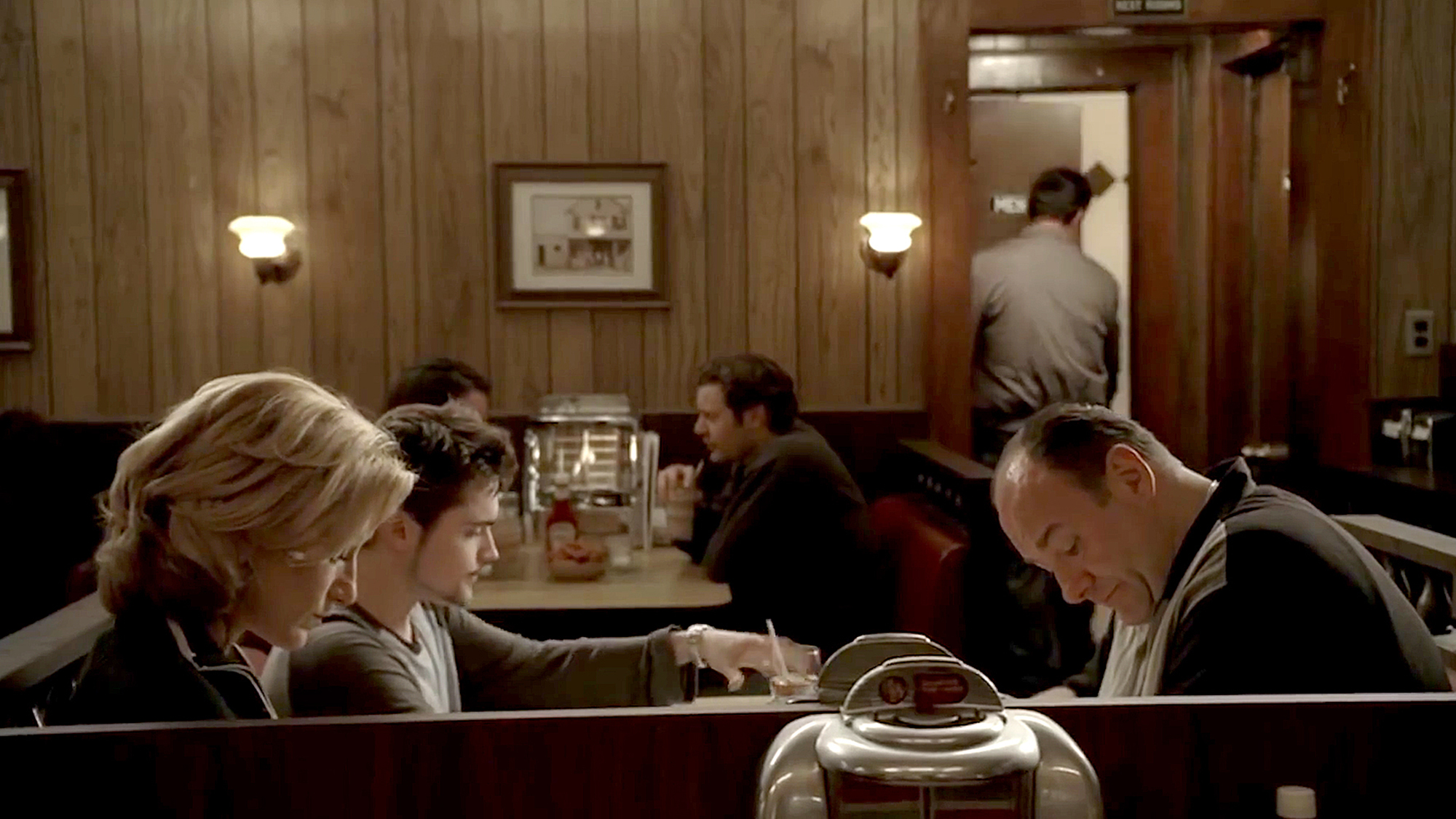
Through six thrilling seasons, The Sopranos threw out every traditional television convention in the book and proved that TV could be a platform without limitations. The show elevated a medium that had previously offered little more than sitcoms and the nightly news to its absolute peak, and the impact of The Sopranos would continue to be felt for years to come.
Alessandra Stanley (critic, The New York Times): The Sopranos changed the game in too many ways to count, but to me, its biggest accomplishment was giving TV permission to take itself seriously. The Sopranos’ commitment to reality was next-level. I mean, the show was so close to life that real Jersey mobsters were reaching out to the writers to ask how they knew all of these accurate details, and the writers would fuck with them and say, “You confessed all of this stuff to us at our house,” and the mobsters would get all nervous and say, “You’re fucking with us,” and the writers would say, “No, you confessed all of your crimes to us and asked us to put it on TV and tell the police. Are you okay? How don’t you remember?” And the mobsters would get all freaked out and cry. That kind of thing just wasn’t happening before.
Terence Winter (writer and executive producer): I think the thing I’m most proud of is Tony’s antihero character. Before Tony, everyone on TV was a good guy or a bad guy, no in between. The closest thing TV had was Mr. Feeny in Boy Meets World, who was usually a sweet old man but every now and then would go too far with his razzing after he drank too much coffee and make fun of Shawn Hunter for being too poor to afford braces. But Tony was complex all the time.
Tom Shales (critic, The Washington Post): Before The Sopranos, every episode of TV ended with a little lesson to learn, all wrapped up in a bow for the audience. There was always a purpose and a reason for everything that happened. But life isn’t like that. Life is more like one of Tony’s dreams, where Tony is a wizard who has every power imaginable except the ability to morph Christopher back into a human after he becomes a horse. The whole time, Christopher is saying, “T, please help, goddamn Ton, being a horse sucks, my eyes are all the way on the sides of my head basically right under my ears and it’s giving me a headache because it’s hard to focus my eyes on shit,” and Tony is riddled with guilt because it’s out of his hands until he wakes up and instantly forgets the whole thing. The Sopranos showed that you can try to interpret things all you want, but most of the time, life doesn’t mean anything. It’s just a series of things that are interesting to look at.
David Chase (series creator): It amazes me that people are still trying to decipher deeper, hidden meanings in the show, with questions like, “Is Tony’s tragic character arc a metaphor for American imperialism?” or, “Does the ambiguous ending represent America’s murky morality in the 21st century?” It’s flattering, but I almost never get involved in those conversations because I’m never invited to them, and I don’t know where they’re happening. But if anyone ever wants to come by and shoot the shit about that stuff, I could probably modify my opinions about what I wanted The Sopranos to mean according to what I think you’d like to hear, or whatever really. I got nothing on the docket most days. Always down to chill.

